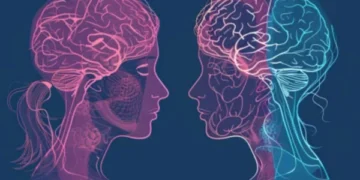Archaeologists have discovered gold and silver coins that were offered to gods by pre-Christian people at a site in the Netherlands. The discovery, known as ‘Devil’s Money’, sheds light on the rituals practiced in this part of Europe before the arrival of Christianity.
Some sites have come to light in the Netherlands, northern Germany and Britain that are being compared to the Nordic world, whose pre-Christian rituals are better understood.
According to the researchers, the discoveries made from these pagan groups in the Nordic regions before Christianity do not apply to the rest of the Germanic Nordic regions. But the coins found in the Heisingen region of the eastern Netherlands provide valuable information about the rituals of a specific group in this region.
Before Christianity, pagan groups in these areas offered their gods gold and silver as offerings, which Christian missionaries later called ‘the devil’s goods’ because of their beliefs.
The Heisingen site was first discovered five years ago when a metal detector detected several gold and silver coins.
Archaeologists later discovered that there were three sites, including a large wooden circular post surrounded by unusual structures.
A gold coin was found at one of these sites, while two dozen broken gold coins were found at other sites. In addition, a gold pendant and a silver earring were also found there.
According to the researchers, gold coins and gems were offered to the gods at these sites regularly over a period of about 100 years, and phosphate analysis shows that animal sacrifices were also offered here.
However, it remains a mystery which gods the natives worshipped.

























